第56章 CHAPTER XXXIX.
Attempted Abduction.--The Marquise Procures a Bodyguard.--Her Reasons for So Doing.--Geography and Morals.
The youthful Marquis d'Antin--my son--was growing up; the King showed him the most flattering signs of his attachment, and as the child had lived only with me, he dreaded his father's violent temper, of which he had often heard me speak. In order to have the custody of his son, the Marquis de Montespan had appealed to Parliament; but partisans of the King had shelved the matter, which, though ever in abeyance, was still pending. I had my son educated under my care, being sure of the tender attachment that would spring up between himself and the princes, his brothers. At the Montespan chateau, I admit, he would have learned to ride an unbroken horse, as well as to shoot hares, partridges, and big game; he would also have learned to talk loud, to use bad language, to babble about his pedigree, while ignorant of its history or its crest; in fine, he would have learned to despise his mother, and probably to hate her. Educated under my eyes, almost on the King's lap, he soon learned the customs of the Court and all that a well-born gentleman should know.
He will be made Duc d'Antin, I have the King's word for it,--and his mien and address, which fortunately sort well with that which Fate holds in store for him, entitle him to rank with all that is most exalted at Court.
The Procureur-General caused a man from Barn to be arrested, who had come to abduct my son. This individual, half-Spanish and half-French, was detained in the Paris prisons, and I was left in ignorance of the matter.
It was imprudent not to tell me, and almost occasioned a serious mishap.
One day I was returning from the neighbourhood of Etampes with only my son, his tutor, and my physician in the carriage. On reaching a steep incline, where the brake should be put on, my servants imprudently neglected to do this, and I felt that we were burning the roadway in our descent. Such recklessness made me uneasy, when suddenly twelve horsemen rode headlong at us, and sought to stop the postilions. My six horses were new ones and very fresh; they galloped along at breakneck speed.
Our pursuers fired at the coachman, but missed him, and the report of a pistol terrified the horses yet further. They redoubled their speed. We gave ourselves up for lost, as an accident of some sort seemed bound to ensue, when suddenly my carriage reached the courtyard of an inn, where we obtained help.
Baulked of their prey, the horsemen turned about and rode away. They had been noticed the day before, hanging about and asking for Madame de Montespan.
We stayed that night at the inn, and next day, provided with a stout escort, we reached Saint Germain.
The King regretted not having provided against similar attempts. He rewarded my postilions for their neglect to use the brake (a neglect which, at first, I was going to punish), saying to me, "If they had put the brake on, you would have been captured and whisked off to the Pyrenees. Your husband is never going to give in!""Such a disagreeable surprise," added he, "shall not occur again.
Henceforth you shall not travel without an adequate escort. In future, you shall have a guard of honour, like the Queen and myself." I had long wished for this privilege, and I warmly thanked his Majesty.
Nevertheless, people chose to put a completely false construction upon so simple an innovation, and my sentiments in the matter were wholly misunderstood. It was thought that vanity had prompted me to endeavour to put myself on a level with the Queen, and this worthy princess was herself somewhat nettled thereat. God is my witness that, from mere motives of prudence, this unusual arrangement had to be made, and Ientirely agreed to it. After all, if the Infanta of Spain gave birth to the Dauphin, Athenais de Mortemart is the mother of several princes.
In France, a Catholic realm, for the King to have a second wife is considered superfluous by the timorous and shrivelled-brained. In Constantinople, Alexandria, and Ispahan, I should have met with only homage, veneration, respect. Errors of a purely geographical nature are not those which cause me alarm; to have brought into the world so perfect a being as the Duc du Maine will never, as I take it, incur blame at the tribunal of Almighty God.
Mademoiselle de Nantes, his charming sister, has from her cradle been destined to belong to one of the royal branches. Mademoiselle de Blois will also become the mother of several Bourbon princes; I have good grounds for cherishing such flattering hopes.
The little Comte de Toulouse already bids fair to be a worthy successor to M. du Maine. He has the same grace of manner, and frank, distinguished mien.
When all these princes possess their several escorts, it will seem passing strange that their mother alone should not have any. That is my opinion, and it is shared by all people of sense.